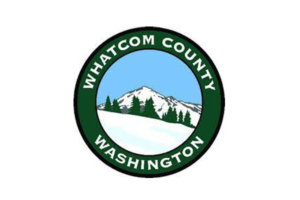We are excited to highlight Michigan State University’s Center for Regional Food Systems (CRFS) in our latest installment of our Forces for Good Food series. CRFS envisions “a thriving economy, equity, and sustainability for Michigan, the country, and the planet through food systems rooted in local regions and centered on Good Food” which they define as healthy, green, fair, and affordable. New Venture Advisors has worked with the Center on a number of initiatives including information technology trainings and assessments for Michigan’s food hubs, and developing strategies for the Michigan Good Food Fund.
However, promoting Good Food is complicated by existing social problems that limit equitable access. CRFS convenes a diverse range of people, processes, and places actively making changes in the local food system to provide input in how to create benchmarks for measuring positive change.
We had a chance to talk with Rich Pirog, CRFS Director, and Kimberly Carr, Post-Doctoral Research Associate in Food Sovereignty and Racial Equity, to learn more about the Center’s latest projects and how national reception is illustrating that more work needs to be done.
MEASURING EQUITY IN FOOD SYSTEMS
Early in their work, CRFS recognized that all parts of the food system, since its inception, have been shaped by racial injustices, and that the food system would never properly address equitable access for all people unless these disparities were addressed.
In 2018, CRFS created the Racial Equity in the Food System Workgroup for this purpose. This national workgroup made up of Cooperative Extension professionals and community stakeholders works to connect, learn, and collaborate to build racial equity within the food system. One of its most used resources is An Annotated Bibliography of Structural Racism in the U.S. Food System, now in its sixth edition with the seventh coming out soon, which provides current research, webinars, and trainings for food system practitioners, researchers, and educators.
When Michigan adopted a Good Food Charter in 2010, they included a clause to create a more equitable food system. CRFS saw an opportunity to create a measurement tool that could be used at a state and local level to track progress toward this goal. They scanned national publications and conducted interviews to aggregate existing and suggest new metrics that are markers of racial equity in the food system.
Measuring Equity in Food Systems: Established and Suggested Metrics was released in May 2019, co-authored by CRFS Specialist Kathryn Colasanti, who partnered with Sarah Rodman-Alvarez on the research. It includes 86 metrics across four themes: Food Access, Food and Farm Business, Food Chain Labor, and Food Movement. Each metric is quantified to its scale (national/state/local), the type of data (primary, secondary or suggested), and includes the source/where to access the data. It was designed to not only be used in Michigan, but nationwide.
CRFS anticipates using metrics from the report to better understand food system equity in Michigan and to track progress overtime. Recently they partnered with the Center for Disease Control to hold a session at their national conference for their grantees in Atlanta for folks working on the ground level in issues around obesity and food access. Not only were people able to identify metrics that could inform their work, they also collectively made suggestions to CRFS for additional metrics that are demonstrating change.
BECOMING MORE INCLUSIVE
Social issues in the food system often stem from underlying racial inequities. CRFS believes that many current food system efforts reinforce white ideologies and do not adequately address systemic injustices. When asked how to start the process toward racial equity, Rich and Kimberly had a few practical recommendations:
Start the conversation– CRFS started a monthly luncheon for staff and university leaders at which a facilitator provides a question to prompt a discussion. Because we see through a lens of our own biases, through this practice we can learn to listen and be comfortable with being uncomfortable.
Learn from other organizations doing the work– CRFS recognized a shortcoming in how they were collecting and representing qualitative data because even how information is heard is shaped by one’s paradigm. In a recent research project, they shifted from one to two people from different paradigms conducting an interview; ideally one person reflecting the culture/race of the interviewee. Afterwards, the interviewers process the information together. By making a simple change in this process, CRFS created an opportunity to improve racial competency, data accuracy, and include lived experience in a meaningful way.
Add a workplace racial equity statement– Organizations need to do their own internal work to make their culture reflect the values they are addressing. CRFS recognized its own need to diversify its staff and are intentionally beginning to change their policies and hiring practices to better reflect racial equity and competency.
NEXT PROJECTS
CRFS continues to lead in providing resources that promote racial equity in our food systems. They are working on a guide about racial equity in the work of food hubs (which we at New Venture Advisors eagerly anticipate) and potentially on food sovereignty led by Kimberly Carr. They are also working on a national initiative to build racial and cultural competency within the national Extension service, an agency that can have a big impact in addressing inequities in their local food systems.
To learn more about the Center for Regional Food Systems and access their many resources, visit their website. And stay tuned for the release of the equity in food hubs guide later this year!
Image: Rawpixel.com / Shutterstock



